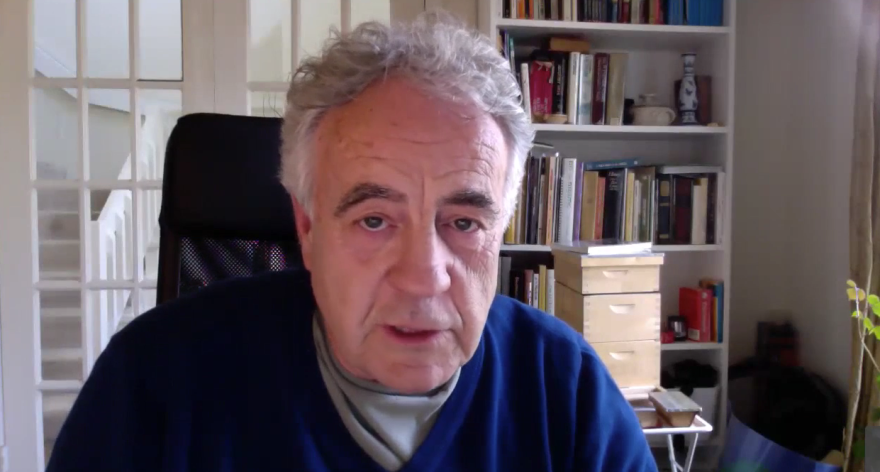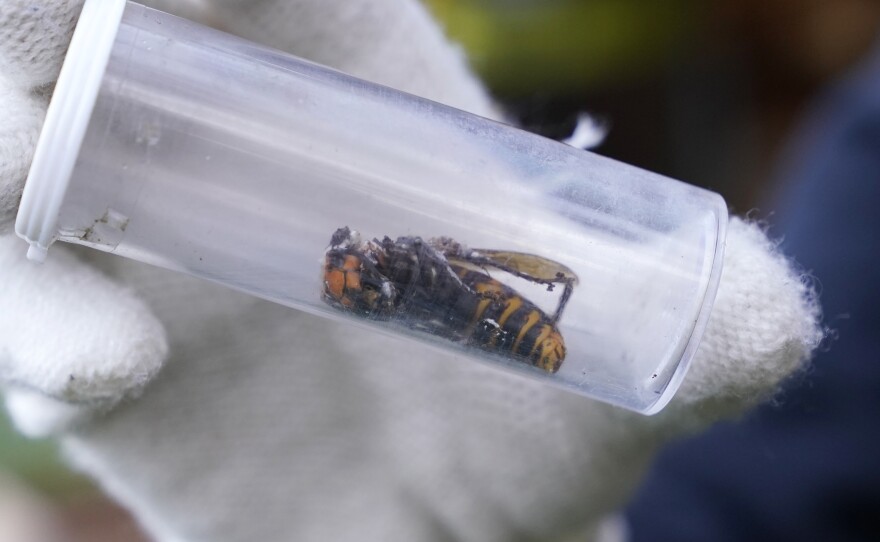Officials in Canada and the United States are coordinating efforts to detect and eradicate the Asian giant hornet.
The first of these hornets was discovered in Nanaimo on Vancouver Island in 2019. Genome sequencing indicates it originated in Japan. Subsequent hornets found in Blaine are believed to have originated in South Korea.
Since 2019, there have been no hornets discovered on Vancouver Island, and the focus is now on the Fraser Valley of British Columbia and northern Whatcom County.

The invasive insects kill bees and take the bee larvae to feed their own young.
Paul van Westendorp, the provincial apiculturist for the British Columbia Ministry of Agriculture, Food and Fisheries, says the public profile of the hornets is so high, it will be tough for them to get comfortable.
"Even if, indeed, they do establish themselves, human predation on these hornets will be so terrible that they will always have a rough time to establish themselves," van Westendorp said.
The public is asked to report any findings to agricultural officials in either Washington or British Columbia. The hornets are most active and visible from July into September.
Scientists say the best way to bait a trap for giant hornets is to use one cup of brown sugar and one cup of water, which should last for about two weeks.
All of the original detections of these hornets have been from “citizen scientists," who set traps or reported sightings of the insect.
Van Westendorp says the COVID-19 border closure has not created a problem in tracking these insects.
"The border is an imaginary line," he said. "And, look, we thank God there is such a thing as FaceTime and phone calls and everything else. And even the postal service are quite excellent in delivering products and materials so that we can coordinate some of our activities."
Six Asian hornets were found on the Canadian side of the border in 2020.








